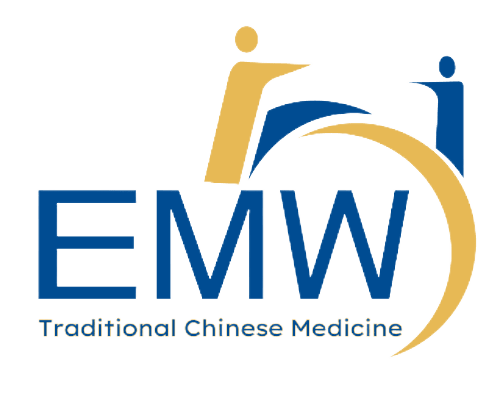What is irritable bowel syndrome (IBS)?
Irritable bowel syndrome (IBS) refers to having a disruptive colon motility where large intestines are affected, characterized by abdominal bloating, cramps, or pain, and are often accompanied with either an increased or reduced frequency in bowel movement.
In Singapore, it is surprising to know 1 in 10 suffers from IBS[1], a common functional gastrointestinal disorder affecting especially the younger crowds as we see a rising trend in individuals aged between 20-30.
As IBS cannot be definitively diagnosed through standard tests, it is advisable to consider a blood test and stool test to rule out infection and inflammatory bowel disease (IBD), the latter refers to the inflammation or destruction of bowel wall that bring about the narrowing of intestines.
Though many individuals may present with mild degree of IBS symptoms, those who have suffered from chronic IBS over a prolonged period experience impaired quality of life as it causes grave disturbance to their daily routine at work or at rest.
EMW-TCM IBS Management
Research has shown that TCM acupuncture in IBS patients stimulates the somatic nervous system and the vagus nerve thereby altering visceral sensation and motility in the intestines [2]. This encourages parasympathetic system to take place, to calms and soothe the spastic intestines and allow the body to digest, rest and recover.
Besides abdomen bloating, pain associated with alteration in stool frequency and appearances, there are syndrome differentiations to consider in our TCM treatment for acupuncture and Chinese herbal medicine prescription.
The most common syndrome differentiations of IBS in a review [3] include stagnation in Liver energy, Spleen deficiency, Spleen-Stomach weakness, Spleen-Kidney Yang deficiency.
For e.g., an IBS patient with Spleen Qi deficiency usually exhibit fatigue, low metabolism, a lack of motivation and constantly overthinking, worrying, and feeling anxious, swollen fat tongue with teeth markings on the side for tongue diagnosis.
Having an acupuncture session allows IBS patient to relax and calm down spastic colon, alleviate abdomen pain and defecation frequency and appearance and customed Chinese herbal medicine is targeted to boost Spleen energy and remove fluid retention.
Common IBS symptoms include:
- Abdominal discomfort, such as abdominal bloating, cramps, or pain – not relieved by flatulence or after bowel movement.
- Changes in appearance and frequency of your bowel movement Diarrhea – soft, loose, or watery stools, at least 3-5 times a day Constipation – hard and dry stools, fewer than 3 bowel movement per week
- A sensation of incomplete bowel clearance
- Rectal bleeding
- Iron deficiency anemia
- Weight loss
- Feeling depressed and/or anxious in chronic IBS patients
One of the most studied pathophysiology involves understanding the connection between brain-gut axis. The brain and gut share a unique intertwined relationship that will impact our physical and emotional well-being through the continuous bidirectional signaling and feedback between the central and enteric nervous system, the limbic system with peripheral intestinal functions.
When we are stressed, our brain send out signals to the gut via activation of hypothalamus pituitary adrenal (HPA) system to release cortisol from the adrenal gland and prevent effective digestion from taking place as the body initiates the sympathetic system and prepares itself for a fight and defense mode. This classic IBS is one that disrupts the effective communication between the brain and gut from happening.
If you have been diagnosed with IBS and would like to book a consultation with our TCM Physician, please bring the following(s) with you on your first visit:
- Endoscopy report (if any)
- Blood test report (if any)
- Current medications
Your treatment plan may involve:
- A detailed TCM assessment
- TCM herbal prescription
- Acupuncture
- Auricular Acupressure
- Abdominal Acupressure
- Dietary and lifestyle advice to reduce recurrence of IBS attacks
References
1. Nearly one in 10 Singaporeans suffers from irritable bowel syndrome. Lydia Ng. For healthXchange https://www.healthxchange.sg/digestive-system/irritable-bowel-syndrome/nearly-one-ten-singaporeans-suffers-irritable-bowel-syndrome
2. Effectiveness of acupuncture to treat irritable bowel syndrome: A meta-analysis. Guan-Qun Chao and Shuo Zhang. World J Gastroenterol. 2014 Feb 21; 20(7): 1871–1877. doi: 10.3748/wjg.v20.i7.1871
3. The Diagnosis Performance of the TCM Syndromes of Irritable Bowel Syndrome by Gastroenterologists Based on Modified Simple Criteria Compared to TCM Practitioners: A Prospective, Multicenter Preliminary Study. Jun Song, Ling Yang, Shuai Su, Mei-Yu Piao, Bao-Li Li, Lie-Xin Liang, Guo-Wen Zuo, Zhi-Min Tang, Yan-qin Long, Xiāo-Li Chen, Ning Dai, Jian-Ling Mo, Yue Yu, Wen-Yong Yu, Mei Zhang, Rong-Quan Wang, Jing Chen, and Xiao-Hua Hou. Hindawi. Evidence-Based Complementary and Alternative Medicine, Volume 2020 |Article ID 9507674 | https://doi.org/10.1155/2020/9507674
Our TCM Physicians
Principal TCM Physician
- M.Med(TCM Gynaecology)
- B.Sc(Hons) Biomedical Sciences
- Dip. Naturopath
- Ayurvedic Therapist(500hrs)
- Registered TCM Physician (Singapore MOH)
Senior TCM Physician
- M.Med(TCM Acupuncture & Moxibustion)
- B.Sc(Hons) Biomedical Sciences
- Certified Aromatherapist
- Registered TCM Physician (Singapore MOH)
TCM Physician
- M.Med(TCM Gynaecology)
- B.Sc(Hons) Biomedical Sciences
- Registered TCM Physician (Singapore MOH)
TCM Physician
- B.Med(TCM)
- B.Sc(Hons) Biomedical Sciences
- International Board-Certified Lactation Consultant (IBCLC)
- Registered TCM Physician (Singapore MOH)





